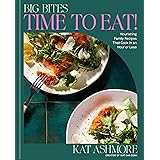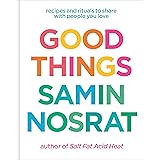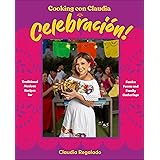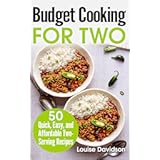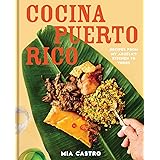Crafting delicious and nutritionally complete plant-based meals can be achieved with surprising ease, as expertly demonstrated in the video above featuring a creamy white beans skillet. This resourceful approach ensures that essential nutrients like protein, iron, and fiber are not only present but also optimally absorbed within a quick 15-minute preparation time. Embracing such streamlined recipes is considered a practical strategy for maintaining a balanced vegan diet without extensive time commitments.
Optimizing Vegan Protein Intake with Beans and Beyond
Beans, a cornerstone of many plant-based diets, are justly celebrated for their robust protein content. The white beans featured in this skillet meal contribute significantly to daily protein requirements, supporting muscle repair and overall bodily functions. While some may question the completeness of plant proteins, it is widely recognized that a varied plant-based diet readily provides all essential amino acids throughout the day.
For individuals seeking to diversify their protein sources, numerous plant-based options are available. Lentils, chickpeas, tofu, tempeh, and quinoa are consistently recommended as excellent additions to any vegan meal plan. Incorporating a spectrum of these ingredients helps ensure a comprehensive intake of amino acids, which are the building blocks of protein. This ensures that a wide array of nutritional needs are met through diverse culinary choices.
Enhancing Iron Absorption in Plant-Based Meals
Ensuring adequate iron intake is often a key consideration for those following a vegan lifestyle, as plant-based iron (non-heme iron) is absorbed differently than animal-derived iron (heme iron). The inclusion of cherry or grape tomatoes in the white beans skillet is a brilliant example of a synergistic food pairing. These tomatoes are rich in Vitamin C, which is known to significantly boost the absorption of non-heme iron when consumed together.
Strategies for maximizing iron absorption extend beyond Vitamin C-rich foods and include several simple dietary practices. Soaking and sprouting legumes and grains before cooking can help reduce phytate levels, which are compounds that inhibit iron absorption. Additionally, avoiding strong tea or coffee with iron-rich meals is often advised, as tannins in these beverages can also impede iron uptake. A thoughtfully constructed plant-based meal plan is designed to naturally support robust iron levels.
The Indispensable Role of Fiber in a Vegan Diet
The creamy white beans skillet, rich in white beans and greens, inherently offers a substantial amount of dietary fiber. Fiber is an essential nutrient, playing a crucial role in digestive health and beyond. It assists in maintaining regular bowel movements, preventing constipation, and supporting a healthy gut microbiome, which is considered foundational for overall wellness.
Beyond its well-known digestive benefits, fiber contributes to several other vital physiological processes. Adequate fiber intake is associated with lower risks of heart disease, improved blood sugar control, and prolonged satiety after meals, which can be beneficial for weight management. Plant-based foods such as whole grains, fruits, vegetables, nuts, and seeds are naturally abundant in fiber, making it straightforward to meet daily recommendations on a vegan diet.
Sourcing Vitamin B12 and Healthy Fats for Optimal Health
Vitamin B12 is a nutrient of particular importance for vegans, as it is primarily found in animal products. The vegan dietitian’s recipe thoughtfully incorporates B12, often through fortified foods or supplements, ensuring this vital nutrient is not overlooked. B12 is indispensable for nerve function, red blood cell formation, and DNA synthesis, underscoring its critical role in maintaining good health.
Furthermore, the homemade almond cheese sauce, described as smoky, creamy, and delicious, is highlighted for its healthy fat content. Almonds provide monounsaturated fats, which are known to support heart health and help absorb fat-soluble vitamins. The addition of hemp seeds further elevates the nutritional profile, supplying omega-3 fatty acids, which are essential for brain function and reducing inflammation. A balanced intake of diverse healthy fats is fundamental to a well-rounded vegan diet.
The Convenience and Nutritional Power of Meal Prep
The 15-minute preparation time for this creamy white beans skillet is a significant advantage for busy individuals seeking nutritious meals. This emphasis on efficiency does not compromise nutrient density, making it an ideal candidate for regular incorporation into meal plans. The ability to refrigerate the meal for up to five days also underscores its suitability for advance preparation.
Meal prepping offers numerous benefits, including time savings during hectic weekdays and the avoidance of less healthy last-minute food choices. By dedicating a short period to preparing meals such as this nutrient-packed skillet, individuals can ensure they have access to healthy, delicious options throughout the week. This strategic approach to food preparation significantly contributes to sustained healthy eating habits and ensures a consistent intake of plant-based protein and other vital nutrients.


